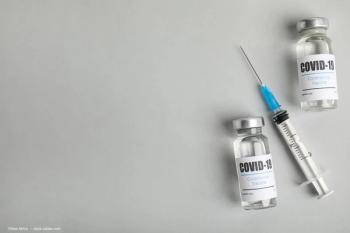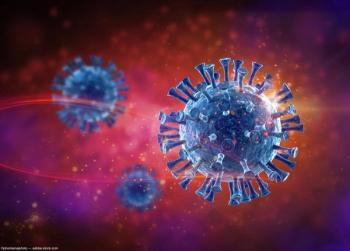
Study examines survival of COVID-19 virus on human skin
Hand washing is one of the key components in starving the COVID-19 virus. A team of investigators studied the importance of washing hands to slow the spread of the virus.
The survival of the COVID-19 virus on human skin is about 9 hours, according to a new study published in Clinical Infectious Diseases.1
This survival time has the potential to increase the contact transmission compared with the influenza virus, which has a survival time of about 1.8 hours. This finding underscores the importance of hand washing in the context of controlling the pandemic.
Ryohei Hirose, MD, and colleagues conducted a study in which they evaluated the stability of the two viruses when mixed with culture medium or upper respiratory mucus on human skin surfaces as well as the effectiveness of 80% ethanol against them.
Related:
Hirose is from the Departments of Infectious Diseases and Molecular Gastroenterology and Hepatology, Graduate School of Medical Science, Kyoto Prefectural University of Medicine, Kajii-cho, Kawaramachi-Hirokoji, Kamigyo-ku, Kyoto, Japan.
The authors reported that SARS-CoV-2 and influenza viruses were inactivated more rapidly on skin surfaces than on stainless steel, glass, and plastic.
The survival time on skin, the investigators found, was significantly longer for SARS-CoV-2 than for influenza virus, i.e., 9.04 hours compared with 1.82 hours.
On other surfaces, the influenza virus was inactivated faster in mucus versus medium conditions, while SARS-CoV-2 showed similar stability in the mucus and medium; again, the survival time was significantly longer for SARS-CoV-2 than for the influenza virus, i.e., about 11 hours compared with about 1.6 hours.
Ethanol inactivated both viruses in the mucus/medium on the human skin in about 15 seconds.
Related:
The extended survival of SARS-CoV-2 on human skin may increase the risk of contact transmission compared with the influenza virus.
“Proper hand hygiene is important to prevent the spread of SARS-CoV-2 infections,” the investigators cautioned.
Reference
1. Hirose R, Ikegaya H, Naito Y, et al. Survival of SARS-CoV-2 and influenza virus on the human skin: Importance of hand hygiene in COVID-19. Clin Infect Dis 2020;
Newsletter
Don’t miss out—get Ophthalmology Times updates on the latest clinical advancements and expert interviews, straight to your inbox.





























